Back to series
Introduction by Joel S. Woodruff
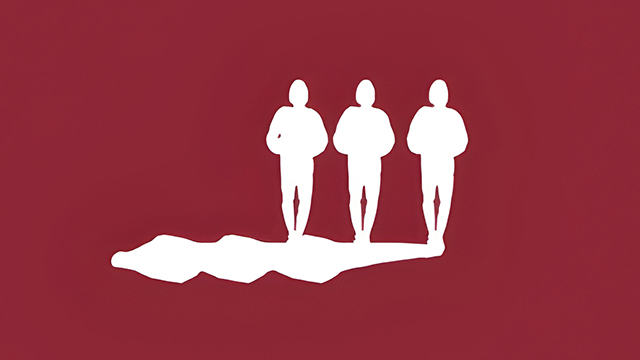
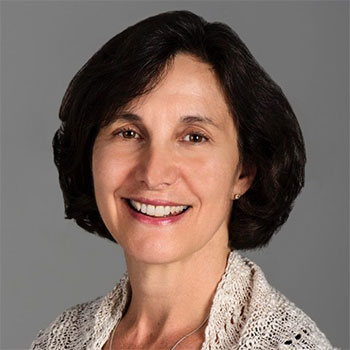

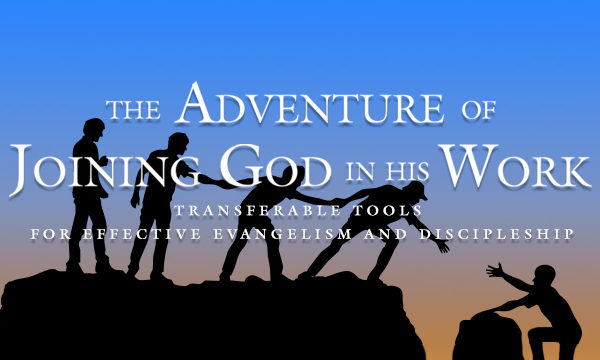
An Unlikely Friendship and a Beautiful Conversion
How a Liberal Feminist Was Introduced to Jesus by a Conservative Pastor
VOLUME 8 NUMBER 3 ISSUE OF BROADCAST TALKS (PDF)
BROADCAST TALKS presents ideas to cultivate Christ-like thinking and living. Each issue features a transcription of a talk presented at an event of the C.S. Lewis Institute. The following is adapted from An Unlikely Friendship and a Beautiful Conversion: How a Liberal Feminist Was Introduced to Jesus by a Conservative Pastor, with Rosaria Butterfield and Ken Smith, a C.S. Lewis Institute (CSLI) livestream event hosted by Joel Woodruff, President of CSLI, on March 27, 2021.
Introduction by Joel S. Woodruff
President, C.S. Lewis Institute
Tonight, it’s my pleasure to introduce our two guests, Dr. Rosaria Butterfield and the Reverend Ken Smith. Dr. Butterfield is the author of a number of books and has written on her own conversion story—which I encourage you to look at in more detail—called Secret Thoughts of an Unlikely Convert: An English Professor’s Journey into the Christian Faith. She was a professor at a large university, came to faith, and now is a homeschool mother, an author, speaker, and married to Kent Butterfield, a pastor.
And the Reverend Ken Smith. He has been a lifetime pastor in the Reformed Presbyterian Church. He served in the Navy toward the end of World War II. He’s a graduate of Geneva College. He and his late wife, Floy, spent time in pastoral ministry in some very interesting places: in Cypress, in Northern Ireland, in Pittsburgh, and Syracuse, New York. He has three sons and a number of grandchildren, and he’s also the author of a book titled Learning to Be a Family.
Joel Woodruff: I’d like to start by giving you each an opportunity to share about your life, maybe where you were before you met each other. What was your background? What were your interests? How would you have described yourself before you met? Rosaria, if you could start. Tell us a little bit about yourself before you met Ken and Floy.
Rosaria Butterfield: Thank you. Before I met Ken and Floy Smith, I was a professor of English and women’s studies at Syracuse University. And I was recruited and mentored and then eventually tenured to teach in their emerging queer theory program, along with my field of specialty, which is 19th-century British literature. And I don’t know how to say this, but I was so threatened by Christians. I just couldn’t figure out why Christians couldn’t leave consenting adults alone. I think that was really it. So after I had written the book that I needed to secure tenure, I started to embark on a project that was just “on my heart.” And it was why the religious right hated people like me. It was a question. Good books always start with a question, and that was the question. You know, I had a little stick ’em on my desk that said, “I would rather be wrong on an important point than right on a trivial one.” So in that spirit I tried to pursue what I believed was the quest to live a good life, the quest to live a decent life. I believed in morality. I, in fact, had authored an article on the morality of gay lives. It was intriguing to me.
Now, my name is Rosaria. I was named after the Rosary. I attended liberal Catholic schools throughout my life. I thought I understood where Christians were coming from, and I just thought it was wrong. So it was in that context that I met Ken and his dear wife, Floy. At the time we had our first dinner together, I had very recently coauthored the first domestic partnership policy at Syracuse University, which is the forerunner for gay marriage.
So I wasn’t just the lesbian next door. I was a true believer before I was a true believer. Just for clarity’s sake, I hadn’t always identified as a lesbian. The gay community is as diverse as any community. I wasn’t the little girl who at nine blew out the candles on her birthday cake and prayed that she would become a boy. That wasn’t it at all. Like a lot of women from my generation, I came of age as a lesbian under a feminist paradigm that really understood . . . It was actually the title of an article by the late Adrienne Rich, “Compulsory Heterosexuality and Lesbian Existence.” So while I had had a heterosexual young adulthood and high school, whatever that means, I chalked that up to the fact that it was just compulsory, that I was never allowed to think for myself. It’s an interesting set of circumstances. Under that context I met Ken and Floy Smith, at their dinner table. I met them in the context of Christian hospitality. I met them as the recipient of Christian hospitality.
Joel Woodruff: Thank you for sharing that opening about your own life. Ken, how about you? Tell us a little bit about your background before you and Floy met Rosaria.
Ken Smith: I was born in Vermont in the home of a pastor. My dad was a preacher. Every morning our family with the six children began by singing the Psalms, reading the Word of God, and praying. That was a rich, rich heritage, which later I came to appreciate. But when I was growing up, I was just a normal kid and got into my own difficulties . . . But my dad moved later to western Pennsylvania. I lived there, and I learned a lot about sin in that era of my life. I was a young teenager. Then Dad took a call in Orlando, Florida, and that’s where I was when I left school, graduated early from high school, and entered the military. So that tells you a little bit about my journey.
I was a very self-centered kid and decided I was going to do my thing. But I washed out of V5 pilot training, which really crushed all my hopes. So I was left not knowing what to do. I ended up at Geneva College after the war was over, and I had to decide what I was going to major in. That really became a pivotal thing for me. I used to pray, “Lord, show me what You want me to do, but don’t make it the ministry.” And all of a sudden, nothing happened. Then He brought me to that conviction, and I was led to commit my life under His call to become a minister.
 That’s all by way of background. So I gave my life to that and spent years in various places ministering. One thing that concerned me in those days, however, was how many fellows could go to seminary and never learn how to help another person come to Christ. I have to thank God for bringing me into contact with The Navigators, who helped Billy Graham in his [Crusade] follow-up program. And I was caught up in that and learned how to minister to people. By the time I got to Syracuse, I was a seasoned pastor with all that experience behind me. And then I encountered Rosaria.
That’s all by way of background. So I gave my life to that and spent years in various places ministering. One thing that concerned me in those days, however, was how many fellows could go to seminary and never learn how to help another person come to Christ. I have to thank God for bringing me into contact with The Navigators, who helped Billy Graham in his [Crusade] follow-up program. And I was caught up in that and learned how to minister to people. By the time I got to Syracuse, I was a seasoned pastor with all that experience behind me. And then I encountered Rosaria.
Joel Woodruff: Obviously, two very different backgrounds. Ken, you grew up in a Christian home background, young in your life fulfilling a call to ministry, you and your wife serving in pastorates around the world. And then Rosaria, coming from a very different perspective. How did you guys end up connecting from such different points of view and backgrounds? Rosaria, do you want to—?
Ken Smith: Rosaria, perhaps you could say a word about the article you wrote in the newspaper that triggered our session.
Rosaria Butterfield: Right. I just had written a response to the Promise Keepers coming to Syracuse, and the Syracuse Post gave it a full page. They titled it “Promise Keepers’ Message Is a Danger to Democracy.” For the life of me, like most writers, it’s always so perplexing. You write books, and you want people to read your books, and nobody reads your books, but they read this article that you wrote in half an hour. It’s frustrating, but that article garnered a lot of responses, a lot of hate mail and a lot of fan mail. I have never put much stock in either. It’s really the same genre from a literary perspective, hate mail and fan mail.
But then I got this letter from Ken Smith. To this day, it was the kindest, most intelligent, most intriguing letter of opposition that I’ve ever received. I just couldn’t dodge it. There was an integrity to it. I was torn, because I felt very much like, here I am writing this book, wanting to know why Christians hate people like me, and here I’m getting this letter from somebody who might actually answer my question. But then there’s always that danger—if he answers the question in a certain way, he’s going to blow the book to smithereens. So, you know, “Do I want to respond?” But Ken’s letter dogged me until I called him back.
Joel Woodruff: Ken, why would you respond to an article in the newspaper and send that kind of letter to Rosaria? What was it that prompted you?
Ken Smith: An elder who had read the article and was livid came into the session meeting one night, threw the paper on the desk, and said, “We’ve got to answer this!” which means “Pastor, front and center.” He wasn’t about to answer it. He wanted me to. So that’s what was behind this. When Rosaria called—and I didn’t know this at the time: you told me later that you were doing research, and you were full of questions—she started asking me all kinds of questions. It was getting longer and longer and longer. Finally, I said to one question, “Rosaria, I think the best way to answer that would be after one of my wife’s good dinners in front of the fireplace.” And so she came to dinner, met my wife, and we had a wonderful evening, that time of getting acquainted. I had a method in my madness. I wasn’t after her. But she was a university professor, and I wanted to get to the students. I have a book review [summary] of the Bible that takes about 40 minutes, and I wanted to get that to the students. And she wasn’t about to let me do that.
Joel Woodruff: You had a different target there than Rosaria. But why, Rosaria, would you accept his invitation to dinner? A total stranger, you just received a letter and a phone call?
Rosaria Butterfield: Well, the gay community is a community highly given to hospitality, too, and especially during . . . that’s the nineties. That was the heyday of AIDS. It was a very perplexing time for many of us. In my gay community, somebody’s home was open every night of the week for dinner and discussion and just standing between you and suicide. So the idea that, when people want to have a real conversation, you get together in homes and you talk, that was very much part of my world. In fact, I would have even used the word hospitality. But I was intrigued by how different things were in the Smith home. And let’s be clear. It’s not like I had one meal at their house, dropped to my knees, committed my life to Christ. Ken, how many meals did I have? Hundreds? Maybe a conservative estimate is 500 meals, okay? This was not like some kind of an easy . . . I didn’t make life easy on Ken and Floy at all. But the idea that you would gather together and disagree and share your disagreements and ask hard questions and basically not leave until you’ve gotten your answers, that’s how professors work, and that’s very much how my gay community worked. And I didn’t need . . . I mean, I knew where Ken was coming from. It was a different gay culture. It was not a culture that said, “If you don’t approve of everything I do, I’m going to crumble into a puddle of tears.” It just wasn’t like that. So I had questions. I probably had more questions than Ken had, which might have surprised him. I don’t know.
Joel Woodruff: Rosaria, how did Ken and Floy differ from your initial perspective or idea of what Christians looked like? In fact, you wrote initial articles. What is it that kind of shook you up about or made them look a little bit different?
Rosaria Butterfield: For one, I was used to people being Christians because it was safe. Ken and Floy were not Christians because it was safe; I don’t think they thought it was safe. Ken and Floy were Christians because they believed it was true. That was really evident from the beginning. It was also evident from the beginning that they cared about the life of the mind, that they weren’t looking over their shoulder to make sure they had the program right. We were having an honest exchange. I also very much felt like they saw me as a human being, in fact, so much so that it was very intriguing to me, because very much in the gay community, like every other community that has been interpolated at this point by intersectionality, is a very naturalistic, nihilistic, utilitarian community. It believes that you are who you are because of how you feel. And so being gay would not be merely how you feel, it would be who you are. It’s an ontology. It’s a kind of personhood.
So this idea that Christians believed that I had dignity and worth just because I’m a human being made in the image of God, that was probably the most radical idea on the planet. Who would believe that? Who would believe that you have worth, not because of what you do, but because of who you ontologically are? It was very intriguing. The other thing that was really, really different was—I don’t remember, I don’t think it was the first meal, but after I got into my hundred meal grooves at the Smith house—there was a program. You would have a meal, you would have a very lively discussion, and then at some point the discussion would end, the Bible and the Psalters would come out, the Bible would be read and expounded. People would ask questions, we would pray, and we would leave it there. I realized that when you don’t have faith, you have no place to leave your anxiety. There’s no place to put it.
Ken Smith: That’s a good point.
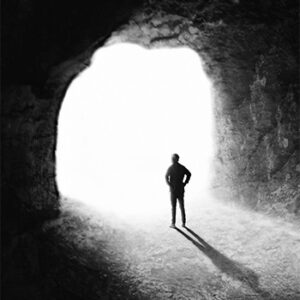 Rosaria Butterfield: Yeah. There’s no place to put it. And you’ve got to carry it around with you forever and ever; it really is the millstone around the neck of everyone out there. That was one thing I noticed about Ken and Floy. The other thing I noticed was that they don’t throw people away. There was no reason for Ken and Floy to spend that much time with me. I certainly wasn’t looking like I was going to be a convert. I was not going to be useful to their church. I was not going to be useful to their family. It was just really clear that Ken and Floy don’t throw people away. And if Ken and Floy don’t throw people away, maybe that’s part of this Christian ethic. And so Ken and Floy showed me, meal after meal after meal, that Christians care about stewarding the mind and ideas. They don’t just care about playing it safe.
Rosaria Butterfield: Yeah. There’s no place to put it. And you’ve got to carry it around with you forever and ever; it really is the millstone around the neck of everyone out there. That was one thing I noticed about Ken and Floy. The other thing I noticed was that they don’t throw people away. There was no reason for Ken and Floy to spend that much time with me. I certainly wasn’t looking like I was going to be a convert. I was not going to be useful to their church. I was not going to be useful to their family. It was just really clear that Ken and Floy don’t throw people away. And if Ken and Floy don’t throw people away, maybe that’s part of this Christian ethic. And so Ken and Floy showed me, meal after meal after meal, that Christians care about stewarding the mind and ideas. They don’t just care about playing it safe.
Joel Woodruff: Ken, can you speak to that? Why did you and Floy really engage with Rosaria and develop such a long-term relationship with her? You’re a pastor, and I’m sure you had a lot of things going on, a lot of other things you could have been doing. Why would you develop this relationship with Rosaria, someone who’s on a totally different side of things, worldview, etc.?
Ken Smith: That’s not hard to answer, because both Rosaria and I had ulterior motives. Rosaria, you were on a track to try to figure something out about evangelicals, right?
Rosaria Butterfield: Right. I considered you my unpaid research assistant.
Ken Smith: Now, she was an English professor, and I wanted to get to the students a summary of the Bible that I have prepared. I have it, and it’s my favorite way of presenting the gospel. And I saw her as a doorway to do that. I wasn’t looking to try to get her. And when I suggested to her that, she demurred from accepting it; she said, “I need to hear it first before it goes to my students.” You know, that’s like shooting fish in a barrel. Anyway, I said, “All right, the next meal we have together, I’ll present this,” and she said, “It will be at my house.”
So we got together . . . some weeks later. And I presented this to her. Later I began to see that was very significant for where she was.
Rosaria Butterfield: It was.
Joel Woodruff: So how did it continue on, then? Once you kind of both had a chance to begin your research on one another and try to work through your ulterior motives? Why is it then that you kept meeting? What is it that kept you coming back for meal after meal, conversation after conversation?
Ken Smith: Well, Floy and I fell in love with her. That’s number one. Number two, still you have to remember, I was on a track to get to those students.
Joel Woodruff: Yeah. And what role did your late wife, Floy, play in this?
Rosaria Butterfield: I had never met a woman like Floy. I was raised by a feminist to become a feminist. My parents, well, they never did divorce. They just fought like dogs and cats the whole time. I’d never met a woman like Floy, a woman who had such clear accomplishments in life, and they were all directed to the immortal souls around her. And it was startling. I mean, I’ve spent my life around strong, smart, tough, competent, intelligent women, and I couldn’t put Floy in a box if my life had depended on it. Then they just kept surprising me. I was expecting Ken to give me a kind of a dumb little lecture about how the Bible is true, and we should just believe it, and if you had more faith, you could. I was not expecting to have someone come to my house and give me a presentation that was Ken Smith showing me how the Bible is a meta narrative for what ails the whole world.
I was a progressive. I could tell you that what ailed the whole world was misogyny and racism. So, “What do you mean, it’s that we don’t believe the Bible? How can that be?” All of a sudden, I realized that Ken and I worked from a very similar paradigm, only I was going in one direction; he was going in the other direction, and one of us had to be wrong. At that moment I realized that I needed to understand, from Ken’s point of view, what he was trying to say, that the Bible was a meta narrative. He didn’t use that language, but that was exactly where this lecture went. It was exactly the sweet spot of my own intellectual background and motive; so in many ways, he did functionally stall my research program, very effectively, because I had to understand how that could be true.
And, you know, that’s where we are today, right? When you look at the world and at intersectionality, at Black Lives Matter, and . . . you’re looking at competitions for a meta narrative, a way of saying, “Well, okay, this is the big problem, and if the world can’t wake up to it, it’s just going to get worse and worse and worse and worse.” So Ken was saying that the big problem is that we don’t believe the Bible is true, that it’s the Word of Christ, and that this is both real and true. In continental philosophy, we talk about many things can be real but not true, but this is both real and true, and I had to get to the bottom of that.
Joel Woodruff: Yes. Interesting. Ken, how did you see your late wife, Floy, playing into this from your perspective?
Ken Smith: Well, we believed God was going to work in Rosaria’s life, and so we didn’t feel any pressure. We just decided to love her and help her. As a result, of that presentation in your home, Rosaria, I’m interested in asking this question: You started reading the Bible for yourself at that point?
Rosaria Butterfield: That is correct. Because in the past, I had been reading it to find the loopholes, right? To find the “Aha!” moments, to say, “Well, this can’t be true, and this can’t be true.” Basically taking the Bible and holding it up to a naturalistic paradigm, you take the Bible, and you say, “Here are the five senses. No, no, no, no.”
Ken Smith: Right.
Rosaria Butterfield: But now it was . . . You and Floy left my house after that presentation, and I had notes on the desk. I went out and walked the dog. All good, clear thinking comes to me when I have a cup of coffee and walk the dog, right? So I walked the dog, and it was a dark, dark Syracuse night. I remember thinking, “If I believed this, my life would be different. No. If I believed this, my life would be better.” And that was a startling thing, because I didn’t think my life was bad. It wasn’t like a country music song. My career was fine. Relationships were fine. Money was fine. It wasn’t that, but it had something deeper than that. And so, yeah, that’s right, Ken. I started reading the Bible for myself, and I started taking very different notes as I was reading. And I think that’s when I got serious. That’s when I started paying attention to the things you were saying. I mean, I’m sorry to say that. It’s not that I wasn’t really paying attention, but I wasn’t paying attention for
me. You know what I mean?
Ken Smith: You were reviewing what I was saying as to whether you wanted your students to hear it.
Rosaria Butterfield: That’s right.
Ken Smith: And the Lord got into you on the way.
Rosaria Butterfield: That is exactly right.
Ken Smith: And that’s what I’d like to emphasize at this point, because there was no high pressure involved in this in any way. It was a friendship that developed, and Rosaria began to read the Bible for herself. If you can get a person to do that, it’s just wait until the Holy Spirit gets a hold of them. It was a couple of years before that actually occurred.
Rosaria Butterfield: Yeah, absolutely. But if I can just interject here. One thing you need to know about this whole situation—Ken is a real pastor. He isn’t a performer. And this is, of course, long before the days of social media, where there’s a collapse of the private and the public. You see, right now, so many pastors are so heavily infused in a social media narrative that they have lost all integrity with someone like the person I used to be. If I had felt that Ken was going to go blog about our conversation or to tweet about our conversation, it would not have been safe for me to turn the pages of my heart over against the pages of the Bible. It would have been unsafe for me to do that. But these were private conversations.
And by private, I mean—I talked to my partner about these, and Ken talked to Floy and his session about these, and I was confident people were praying for me because, after all, that’s what Christians do, right? But I wasn’t going to read about it in the newspaper. I wasn’t going to be shamed for either believing what I did believe or changing my mind.
Joel Woodruff: Ken, you made an interesting comment earlier. You said that you and Floy just fell in love with Rosaria. What is it about Rosaria that you fell in love with? I mean, as you developed this friendship, what was it about her that intrigued you and Floy and took it beyond “Let’s get some information and try to get a way to her students” to “We really like this lady. We’d like to get to know her better.” What was it about her?
Ken Smith: Well, I think she’s a very likable person. That’s the first thing. Second thing, she could conduct a decent conversation. Of course, she was way beyond me academically, as far as preparation. Mine was theology, helping people get to know God. And when you can win a hearing with anybody, you know, “God so loved the world.” Love is what draws us to sinners who need the gospel. So I don’t know. She’s unique in our relationship, but she’s not the only person we ever presented the gospel to and fell in love with. God brings hearts together, and we prayed for her every day once we knew her and brought her before the Lord.
Joel Woodruff: How did that impact—as you prayed for Rosaria, and as you pray for people, what does that do for you personally, as far as relationships?
 Ken Smith: Well, it’s my assignment from God. You remember I told you I had a hard time knowing my calling, what it was I was going to do? Once I learned that, I was well taught on how to help people and what it meant to pray for them. What were you praying for those people? With Rosaria we were simply praying for the hearing. And one day she showed up at church. And we never invite people to church, because they expect that. We invite people to Christ. We invite people to our home. But we just avoid that other, not because we don’t want them to come. But they expect that.
Ken Smith: Well, it’s my assignment from God. You remember I told you I had a hard time knowing my calling, what it was I was going to do? Once I learned that, I was well taught on how to help people and what it meant to pray for them. What were you praying for those people? With Rosaria we were simply praying for the hearing. And one day she showed up at church. And we never invite people to church, because they expect that. We invite people to Christ. We invite people to our home. But we just avoid that other, not because we don’t want them to come. But they expect that.
Joel Woodruff: That’s an interesting concept right there. I think a lot of people in the church are told to invite your nonbelieving friends to church. Rosaria, did you pick up on that in any way? Were you even aware of that?
Rosaria Butterfield: Oh, yeah! In fact, I was completely sucker punched. After the first meal, we had a really nice meal and a lovely conversation. As it ended, I was just bracing myself, because that’s when you’re told to commit your life to Jesus and come to church, especially if you’re the lesbian next door. I know the playbook. Ken knows the playbook. And when all Ken and Floy did was give me a hug and say, “It’s so good we’re neighbors. Let’s do this again,” like we were any old neighbors, I thought, “Am I chopped liver? Don’t I get an invitation to church?” But I’ll tell you—it made me feel like I wasn’t a project. I wasn’t Ken’s new project. And also, he wasn’t pushing me off on somebody. I had questions; he had answers. He had questions; I had answers. And we were going to actually come to the table like two grown-ups and engage. And I really respected that and appreciated that.
Joel Woodruff: That’s great. It’s wonderful to hear that two people can have a civil discussion and actually ask questions and think together.
Rosaria Butterfield: And they still can.
Joel Woodruff: And they still can. Yes.
Rosaria Butterfield: And they still can. We still do that today. You just don’t see it on the news. You don’t see it on social media. You would see it at our table. You would see it even during COVID at our table. Somebody said, at a recent interview, “I’ll bet you can’t wait to start practicing hospitality again.” And I say, “Why did you think I stopped?”
Joel Woodruff: That’s great.
Rosaria Butterfield: Don’t believe everything you hear out there in the news. The gospel goes hand to hand. You put the hand of the lost into the hand of the Savior, and you stand close enough to get hurt. And that’s how it’s supposed to be. That’s not an aberration. It’s not a problem. That’s the sweet spot of the Christian life.
Joel Woodruff: That’s beautiful. Go ahead, Ken.
Ken Smith: I want to insert something here. I make it a practice to be very careful ministering to women. That’s why it was nice to have her come to our table, where my wife was there.
I wanted to introduce that because I depended heavily on Floy to reach women. I didn’t spend time alone very often with you, Rosaria. Maybe once or twice when you were ready to join the church. But prior to that, we’d have meals together, but when it came to personal time, she spent time with my wife. Floy had a big impact on her life.
Rosaria Butterfield: Yeah. I’m glad you mentioned that, because when I started to rummage around in this sinful heart of mine and repent of things—sometimes you just take things out and you’re like, “Well, how can I repent of that? I really like that.” I realized that the biggest problem I had was not that I identified as a lesbian. The biggest problem—I had no idea what it meant to be a woman, which is hilarious, right? I mean, I’m a professor of women’s studies, blah, blah, blah, blah, blah. I’m a feminist. I had no idea what it meant to be a woman. And Floy, in word and deed, was the very first person, very much like a mother, who just, with no shame and no guile, opened her home and her heart.
And how could I have possibly dealt with the sin of lesbianism without first understanding what a woman is? You know what I mean? How do you take something away without understanding what needs to be there in the first place? It makes no sense. I think that’s part of why some of our current discussions around sexuality and gender, they’re so dumb. They make no sense! A person like me could never be helped by them. But Floy showed me by example and by gentle reminder just what a woman is. And, boy! Talk about something that is lost on our world right now.
Ken Smith: Yeah, and she knew how to help you get into the Scripture.
Rosaria Butterfield: She did. She absolutely did. And that was really important, too, because I’m a whole book scholar. My job is to read a whole book and make sure it fits together. That’s why I thought the Bible would be easy to dismantle. But that’s another story. It wasn’t. That’s another story. Floy showed me how to memorize. Singing with psalms did, too; the practice of psalm singing was extremely helpful in understanding, coming to a different understanding of a text, a book. The Lord Jesus Christ, the Word made flesh, this book being the Word of Christ, this book being inherent and sufficient and perfect, and how that complemented what it means to have union with Christ.
It was so fascinating the way Floy would teach Bible memory. I came away realizing that, from a Christian point of view, Jesus is not just your substitute. Jesus is your pattern. And pattern is a very literary idea. Anyway, Floy taught me how to read the Bible.
[Video of the complete interview, including a considerable amount of additional content, is available here. To learn more about Dr. Butterfield’s conversion story, see her book, Secret Thoughts of an Unlikely Convert: An English Professor’s Journey into the Christian Faith (Crown & Covenant, 2012). To listen to Ken Smith’s Summary of the Bible, on audio (38 minutes), is available at sermonaudio.com.]


Rosaria Butterfield
SpeakerRosaria Butterfield is a speaker and author of several books including, Secret Thoughts of an Unlikely Convert: An English Professor’s Journey Into the Christian Faith, Openness Unhindered: Further Thoughts of an Unlikely Convert on Sexual Identity, Union with Christ and The Gospel Comes with a House Key: Practicing Radically Ordinary Hospitality in Our Post-Christian World. Rosaria earned her PhD from Ohio State University and was a tenured professor of English at a large university before she came to believe the claims of Jesus Christ. Rosaria is zealous for hospitality, loves her family, cherishes dogs, and enjoys coffee.

 COPYRIGHT: This publication is published by C.S. Lewis Institute; 8001 Braddock Road, Suite 301; Springfield, VA 22151. Portions of the publication may be reproduced for noncommercial, local church or ministry use without prior permission. Electronic copies of the PDF files may be duplicated and transmitted via e-mail for personal and church use. Articles may not be modified without prior written permission of the Institute. For questions, contact the Institute: 703.914.5602 or email us.
COPYRIGHT: This publication is published by C.S. Lewis Institute; 8001 Braddock Road, Suite 301; Springfield, VA 22151. Portions of the publication may be reproduced for noncommercial, local church or ministry use without prior permission. Electronic copies of the PDF files may be duplicated and transmitted via e-mail for personal and church use. Articles may not be modified without prior written permission of the Institute. For questions, contact the Institute: 703.914.5602 or email us.
-
Recent Podcasts
Fix Your Eyes Upon Jesus
by Steven Garber, Aimee Riegert on June 27, 2025Perhaps the most prominent and current figure who...Read More
-
An Honest Search for God – Dr. Jay Medenwaldt’s Story
by Jana Harmon, Jay Medenwaldt on June 20, 2025
-
Moving Beyond Forgiveness to an Abundant Life
by Robert Saucy, Aimee Riegert on June 13, 2025
-
Recent Publications
Are Miracles Possible
by Christopher L. Reese on June 1, 2025The 21st century has provoked many conversations and...Read More
-
Is God Just, Not Fair?
by Jennifer Rothschild on May 15, 2025
-
Seeking Dietrich Bonhoeffer
by Joseph A. Kohm on April 29, 2025
0
All Booked
0.00
All Booked
0.00
All Booked
24720
The Adventure of Joining God in His Work Live Online Small Group 7:00 PM CT
https://www.cslewisinstitute.org/?event=the-adventure-of-joining-god-in-his-work-live-online-small-group-700-pm-ct&event_date=2025-09-16®=1
https://www.paypal.com/cgi-bin/webscr
2025-09-16

Next coming event
Days
Hours
Minutes
Seconds
The Adventure of Joining God in His Work Live Online Small Group 7:00 PM CT
On September 16, 2025 at 7:00 pmCategories
Speakers
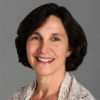
Rosaria Butterfield
Speaker
Ken Smith
Speaker
Team Members

Rosaria Butterfield
SpeakerRosaria Butterfield is a speaker and author of several books including, Secret Thoughts of an Unlikely Convert: An English Professor’s Journey Into the Christian Faith, Openness Unhindered: Further Thoughts of an Unlikely Convert on Sexual Identity, Union with Christ and The Gospel Comes with a House Key: Practicing Radically Ordinary Hospitality in Our Post-Christian World. Rosaria earned her PhD from Ohio State University and was a tenured professor of English at a large university before she came to believe the claims of Jesus Christ. Rosaria is zealous for hospitality, loves her family, cherishes dogs, and enjoys coffee.

Team Members
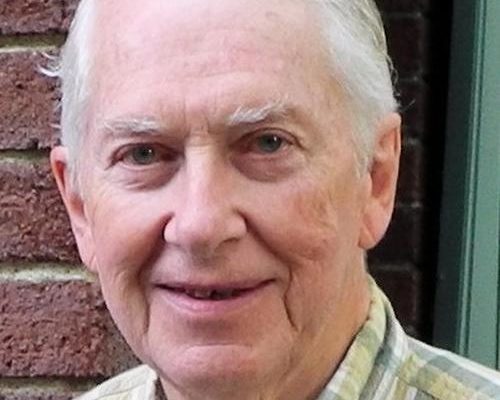
Ken Smith
SpeakerKen Smith, Pastor, in the Reformed Presbyterian Church of North America and was ordained in what was the Central-Pittsburgh Reformed Presbyterian Church in 1952. He served in the Navy during World War II and is a graduate of Geneva College. He and his late wife, Floy, spent time in pastoral ministry in Pittsburgh, Cyprus, Northern Ireland and Syracuse, NY. He has served on the boards of Wilkinsburg Christian School, Reformed Presbyterian Theological Seminary (RPTS), and Geneva College where he chaired the Board of Trustees for seven years. He has lectured at RPTS and been a faculty member of the Ottawa Theological Hall since its start. He is the author of several books including Learning to be a Family.





